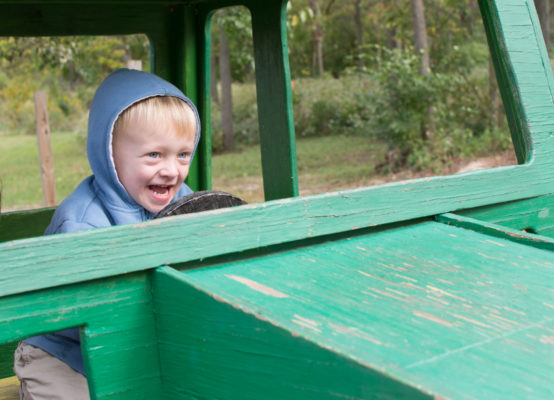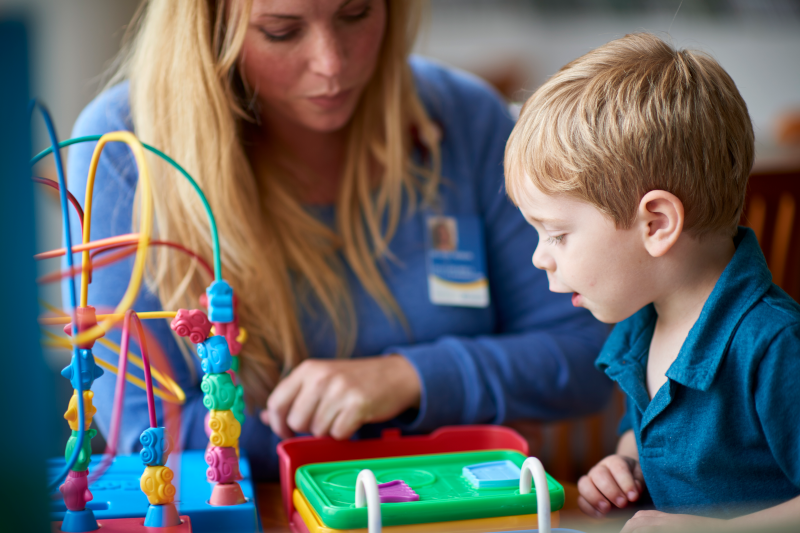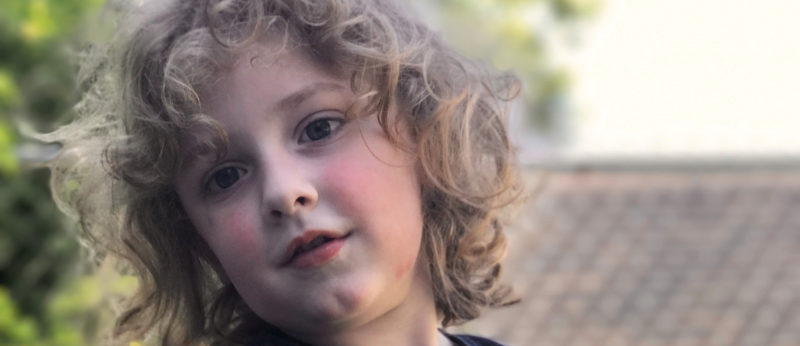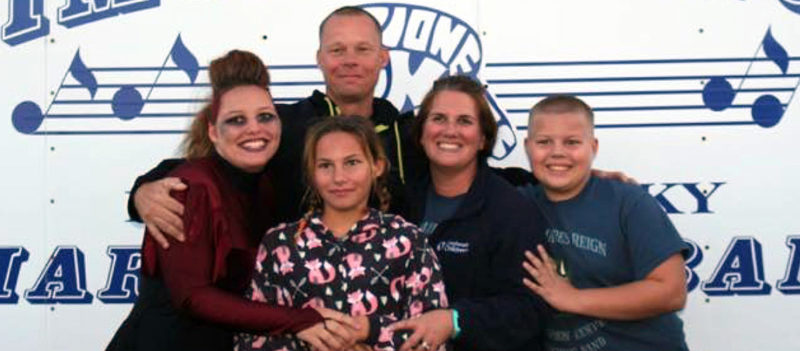As an early childhood educator and mother of two other children, I knew my son, Henry, had at least one developmental delay by age 6 months. He cried and he laughed, but he did not babble. There were no “goo-goos” or “ga-gas.” Henry’s first year was difficult. Food allergies and frequent unrelieved ear infections resulted in many trips to the doctor’s office.
By the time Henry was 18 months old, he was still not able to say any words and we made an appointment with Cincinnati Children’s for a developmental evaluation. Further assessment was ordered, and finally, Henry was diagnosed with a delay (apraxia was a question mark at the time). He would begin speech therapy.
There is this period of time, after an uncertain diagnosis and before treatment begins, when the frantic Googling begins. What does this mean for my child? What is the long-term outlook? What are we in for? Somehow Google always takes us to the worst possible scenario.
Then, there are often well-meaning, but dangerous people in the shadows who say things like, “But he seems so smart. Are you sure he needs that?” They say, “He’ll grow out of it on his own.” They say, “Boys are just slower to talk.”
It was a difficult and frustrating period of time, but luckily, our next visit was with a true angel. Henry was assigned to Heather Reffitt, a speech-language pathologist with Cincinnati Children’s. As soon as I met her, I knew Henry would be okay. Heather had so much enthusiasm and energy. If anybody could make Henry better, it would be Heather. Every visit was bubbles, and digging, and penguins, and books, and dot dots, and vroom, vrooms. Every time we arrived in the parking lot, Henry would clap his hands and beam with joy. It was time to play.
Heather gave us wonderful strategies to use at home with Henry. Tantrums were ever-increasing with his frustration of not being able to communicate, but then, finally, came “uice.” When Henry was able to say “uice” (juice), it was a turning point because he used his words to communicate a need. It was a real conversation.
Henry has been in speech therapy for about a year now, and he is getting close to “typical” and improving rapidly. Now, he can speak with 2-3 words phrases, though not always clearly. At our last appointment, Heather suggested a final appointment was on the horizon, and we would then wait a few months, and reassess.
There is little doubt in my mind that Heather has made a big difference for Henry. She has made a big difference for our whole family. If there was one thing I wish people understood, it would be that early intervention can only help. Don’t count on things just getting better on their own.
These baby and toddler years represent a closing window of opportunity to make a real difference in brain development. I am very thankful for my experience with Heather and Cincinnati Children’s. Early intervention specialists are true angels. Their tireless patience in working on speech, coupled with endless play-doh and bubbles to make it fun, have given my son and countless other children a real chance. Thank you for all that you do.






Hi Sarah, Glad to hear your son is doing better. It’s sometimes hard to accept these things, but you seem to be on the right tract ! God bless you & your family. I keep in touch with your mom, but I didn’t know about your son’s difficulties. May 2015 be a good & prosperous year
for all of you ! Love, Judy